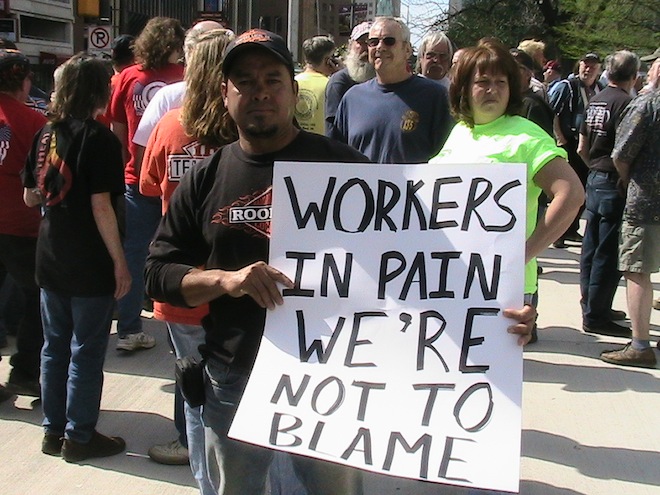Workers tend to bear the brunt of the American economy’s boom and bust cycles. When recessions hit and unemployment rises, workers’ share of the national income — the money people earn through wages and salaries, as opposed to corporate profits and capital gains — tends to decline. And when the economy recovers, workers’ portion of the country’s income rebounds to somewhere around its level prior to the recession.
At least that’s how it went in the 20th century. But since the recession of the early 2000s, we’ve seen the decline without the recovery — even after the recession ended, workers’ portion of national income continued to drop consistently, declining up to and through the recession of the late Bush and early Obama years. Which raises the question: Has the economy changed in a fundamental way that will prevent workers from enjoying the benefits of the current incipient recovery?
Last week, The New York Times highlighted businesses’ reluctance to invest in more workers in the current (glacial) economic recovery, instead opting for equipment upgrades. Since the recovery began, the Times reported, spending on machinery and technology has increased 26 percent, while spending on employees has inched up just 2 percent. Costs are, of course, a big factor: Labor costs have increased by nearly 7 percent during the recovery as equipment costs have actually declined.
But rather than an exception, workers’ exclusion from the benefits of the recovery may be part of an alarming new trend. Take a look at this chart, showing the share of the nation’s income going to workers over the decades:
The rebound in workers’ income share after the early 2000s recession simply never materialized. As a result, this figure is now at by far its lowest level since the Bureau of Labor Statistics began keeping track of it in 1947.
A graph of the financial industry’s profits, needless to say, looks a little different.






